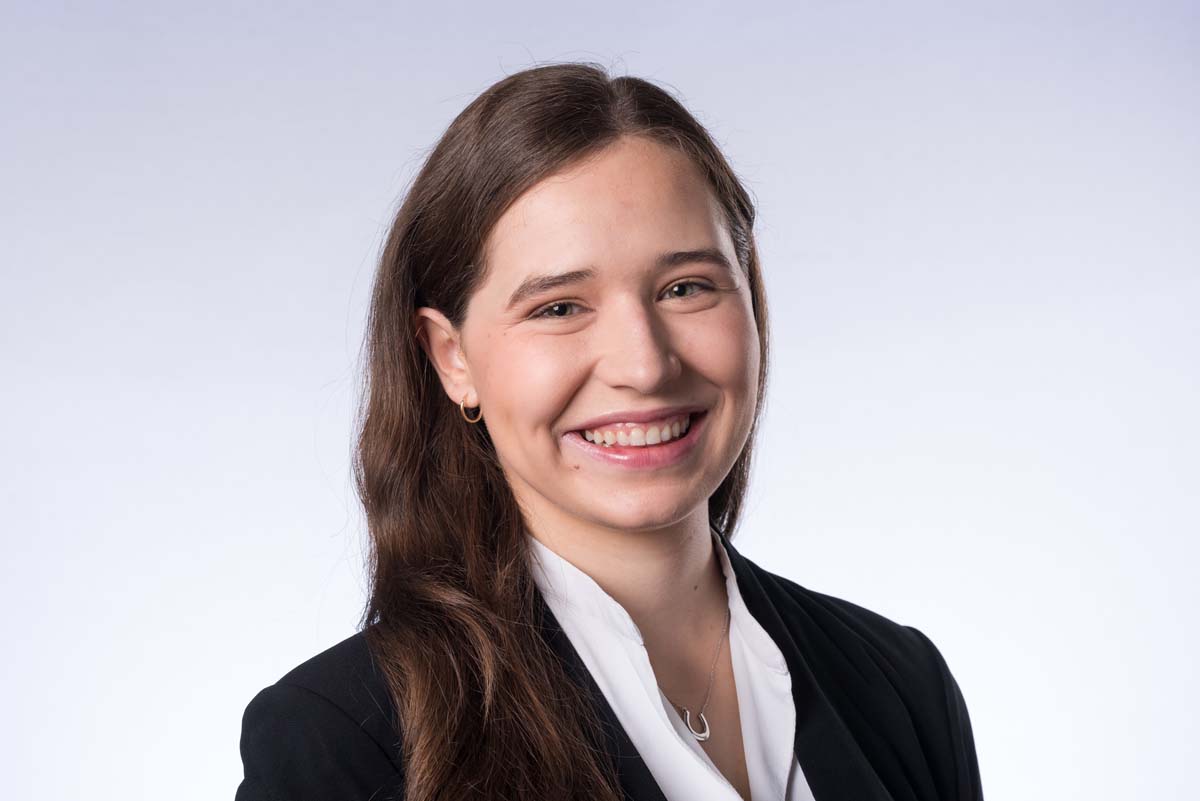Meet our MEngCEM alumna Alexandra Labuda. We chatted about her journey at the program, her passion for urban planning, her career path and her future goals.

Could you introduce yourself please.
My name is Alexandra Labuda, I’m a 2023 graduate of the Master of Engineering in Cities Engineering and Management (MEngCEM) program.
What were your courses (emphasis)?
I specialized in Critical Infrastructure Resilience.
Do you recall any projects/assignments completed in your program/emphasis, which helped you build your portfolio or helped you during the interviewing process?
In my Infrastructure Resilience Planning (APS1024) course, I worked in a team to develop a Resilience Strategy for a local government client. The strategy communicated how to reduce vulnerability to hazards identified as posing the greatest risk to critical infrastructure. This project helped me expand my portfolio, demonstrate my understanding of resilience planning, and apply it to a real-life problem. The lessons I learned through this project remain relevant and transferable to many other communities facing the mounting effects of climate change and have a desire to better plan for operational resiliency.
Why did you decide to pursue an MEng degree at U of T?
Pursuing an MEng degree at the University of Toronto was a strategic decision to complement my urban planning background and enhance my understanding of urban issues through an engineering lens. I felt the MEngCEM program would equip me with the technical engineering knowledge needed to implement the physical infrastructure of cities and understand complex urban systems. Additionally, given the interdisciplinary nature of city planning, I was confident that a combination of engineering and planning expertise would help me incorporate principles of both professions in my work to better address multifaceted urban challenges. U of T’s recognition on a global stage and reputation for teaching excellence further cemented my decision to pursue the MEngCEM program.
What was your favourite study spot on campus?
My favourite study spot on campus was the University College Library. It’s book-lined alcoves and beautiful stained-glass windows provided a certain calmness that aided my focus and creativity! The Eberhard Zeidler Library in the John H. Daniels Faculty of Architecture, Landscape and Design is a close second with its modern yet cozy ambiance.
How did your practicum go?
During my practicum, I returned to my former employer Urban Systems Ltd. Urban Systems is a multidisciplinary professional consulting firm based in western Canada. During my practicum, I was responsible for supporting the delivery of a wide range of projects and other specialized studies for local government clients (land use inventories and strategic plans, growth and redevelopment strategies, infill housing studies, stormwater management studies, housing needs assessments etc.). My practicum experience illuminated and reinforced many of the academic concepts I learned in the MEngCEM program.
Are you still working with them?
I currently hold the position of Community Planner with Urban Systems. I provide professional advice to local government clients and Indigenous Communities on addressing growth and development opportunities and challenges, from both urban planning and engineering perspective. I find my work very rewarding and Urban System’s commitment to building sustainable and socially responsible communities strongly align with my personal values and desire to have a positive impact and add value to my own community.
How did the knowledge gained in the Program help you in your career?
The knowledge I gained in the MEngCEM program has helped me to become a systems thinker, apply data science to urban problems, and be more critical of urban policymaking. All these skills have benefited me in my work by helping me to more effectively deliver plans, bylaws, and policies that reflect the unique needs of communities. Specifically, my enhanced understanding of infrastructure resilience and protection, urban prosperity, data analytics and urban policy-making has helped me to develop personalized solutions for local governments experiencing challenges with infrastructure capacity, housing affordability, and community completeness.
What are your plans for the future career/academic-wise?
I am determined to continue developing my engineering and management skills and further grow in my professional competency as a Community Planner. I’m also excited at the prospect of mentoring and sharing my knowledge with new co-op students and those early in their professional planning and engineering careers.
Any suggestion for future MEngCEM students?
I highly encourage future MEngCEM students to explore new and interesting subject areas in the program and step outside their comfort zone. While doing so, it’s important to have a strong support network whether that be your peers, professors, mentors, or friends. Lastly, I highly recommend students attend the CivMin Career Fair which takes place every January to network and connect with others in your professional field.
Can we get an inspiring quote from you in closing?
Hard work is the bridge between where you are and where you want to be.